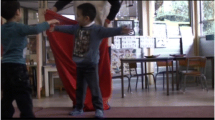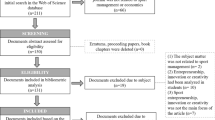Abstract
The role of the adventure sports coach was first identified by Collins and Collins (2012) who suggested that the sports coaching process is significantly different in an adventurous context. Whilst there is a growing body of literature surrounding coaching pedagogy (Hay, Dickens, Crudginton, & Engstrom, 2012), investigation of coaching pedagogy within adventure sports is less common. Video ethnography is a well-documented field, with a broad base in the literature across many fields of study, and as technology progresses, new applications of that technology become apparent and require investigation. This paper details the development of a new method of data capture for qualitative analysis in the field of adventure sports research/adventure sports coaching pedagogy, using point of view (POV) video cameras as the primary means of data capture. Ethical and philosophical concerns are considered with a brief evaluation of the technique and suggestions for future use and development.
Similar content being viewed by others
References
Armstrong, D., Gosing, A., Weinman, J., & Marteau, T. (1997). The place of inter-rater reliability in qualitative research: An empirical study. Sociology, 3(3), 597–607.
Banks, M., & Morphy, H. (1997). Rethinking visual anthropology. New Haven CT: Yale University Press.
Bunyan, P. S., & Boniface, M. R. (2000). Leader anxiety during an adventure education residential experience: An exploratory case study. Journal of Adventure Education and Outdoor Learning, 1(1), 37–44.
Burr, V. (2003). Social constructionism (2nd ed.). Hove, England: Routledge.
Capel, S., & Blair, R. (2007). Making physical education relevant: Increasing the impact of initial teacher training. London Review of Education, 5(1), 15–34.
Carson, F. (2008). Utilizing video to facilitate reflective practice: Developing sports coaches. International Journal of Sports Science and Coaching, 3(3), 381–390.
Collins, L., & Collins, D. (2012). Conceptualizing the adventure-sports coach. Journal of Adventure Education and Outdoor Learning, 12(1), 81–93.
Cromdal, J. (2000). Code-switching for all practical purposes: Bilingual organisation of children’s play. Linköping Studies in Arts and Science, 233, Linköping, Sweden: Linkoping University Press.
Eriksson, K. (2002). Life and fiction: On intertextuality in pupils’ booktalk. Linköping Studies in Arts and Science, 251, Linkoping, Sweden: Linkoping University Press.
Foucault, M. (1991). Discipline and punish: The birth of the prison. Harmondsworth, England: Penguin Books.
Gergen, K. J. (1999). An invitation to social constructionism. London, England: Sage.
Greene, J. C., Caricelli, V. J., & Graham, W. F. (1989). Toward a conceptual framework for mixed-method evaluation designs. Educational Evaluation and Policy Analysis, 11(3), 255–274.
Gresham, N., & Parnell, I. (2009). Winter climbing +. Sheffield, England: Rockfax.
Haukåssveen, J., & Bordevik, T. A. (2005). Heavy water — Rjukan ice. Sheffield, England: Rockfax.
Hay, P., Dickens, S., Crudgington, B., & Engstrom, C. (2012). Exploring the potential of assessment efficacy in sports coaching. International Journal of Sports Science and Coaching, 7(2), 187–198.
Hickman, M., & Palmer, C. (2012, September). The 3i model — a guide to critical reflective analysis in Outdoor Education; information, inference and implication. Presentation at the British Educational Research Association Annual Conference, London Institute of Education, England.
Hoare, L. (2006). Use of video. In F. Ferrero (Ed.). British Canoe Union coaching handbook: A manual of coaching techniques, advice & guidelines for the canoe and kayak coach. Y Felinheli, Wales: Pesda Press.
Leberman, S., & Martin, P. (2004). Enhancing transfer of learning through post-course reflection. Journal of Adventure Education & Outdoor Learning, 4(2), 173–184.
Lyons, K. (1988). Using video in sport. Huddersfield, England: Springfield.
Mirzoeff, N. (1998). The visual culture reader. New York, NY: Routledge.
Mitchell, W. J. T. (2002). Showing seeing: A critique of visual culture. Journal of Visual Culture, 1,165–81.
Mulvey, L. (1975/1992). The sexual cinema: A screen reader in sexuality. New York, NY: Routledge.
Pink, S. (2001). Doing visual ethnography: Images, media and representation in research. London, England: Sage Publications.
Rea, T. (2008). Methodology in outdoor research: Approaches from an alternative discourse. Journal of Adventure Education and Outdoor Learning, 8(1), 43–53.
Ruby, J. (1995). The moral burden of authorship in ethnographic film. Visual Anthropology Review, 11, 77–82.
Sparrman, A. (2002). Visuell kultur i barns vardagsliv / bilder, medier och praktiker [Visual culture in the everyday life of children / pictures, media and practices]. Linköping Studies in Arts and Science, 250. Linkoping, Sweden: Linkoping University Press.
Sparrman, A. (2005). Video recording as interaction: Participant observation of children’s everyday life. Qualitative Research in Psychology, 2(3), 241–255.
Spradley, J. P. (1980). Participant observation. London, England: Harcourt Brace Jovanovich College Publishers.
Stacey, K. (1994). Star gazing: Hollywood cinema and female spectatorship. New York, NY: Routledge
Taylor, B. (2006). Coaching. In F. Ferrero (Ed.). British Canoe Union coaching handbook: A manual of coaching techniques, advice & guidelines for the canoe and kayak coach. Y Felinheli, Wales: Pesda Press.
Tholander, M. (2002). Doing morality in school: Teasing gossip and subteaching as collaborative action. Linköping Studies in Arts and Science, 256. Linkoping, Sweden: Linkoping University Press.
Timms, B. (2006). Coaching Novices. In F. Ferrero (Ed.). British Canoe Union coaching handbook: A manual of coaching techniques, advice & guidelines for the canoe and kayak coach. Y Felinheli, Wales: Pesda Press.
Author information
Authors and Affiliations
Corresponding author
Additional information
Graham French is the Director of Postgraduate Secondary Education at the School of Education at Bangor University, Wales. He delivers modules in outdoor learning to trainee primary school teachers, and is course tutor to the secondary outdoor activities group. A qualified coach in several adventure sports including mountain biking and white-water paddling, his research interests include models of delivery of outdoor education, outdoor education curriculum design and developing outdoor learning resources for non-specialists. Away from academia, he is the adventure activities technical advisor for a national children’s holiday charity, and coach educator and trainer for the Mountain Bike Instructor’s Award Scheme, and Canoe Wales.
Rights and permissions
About this article
Cite this article
French, G. Going pro: Point of view cameras in adventure sports research. Journal of Outdoor and Environmental Education 19, 2–9 (2016). https://doi.org/10.1007/BF03400982
Published:
Issue Date:
DOI: https://doi.org/10.1007/BF03400982




